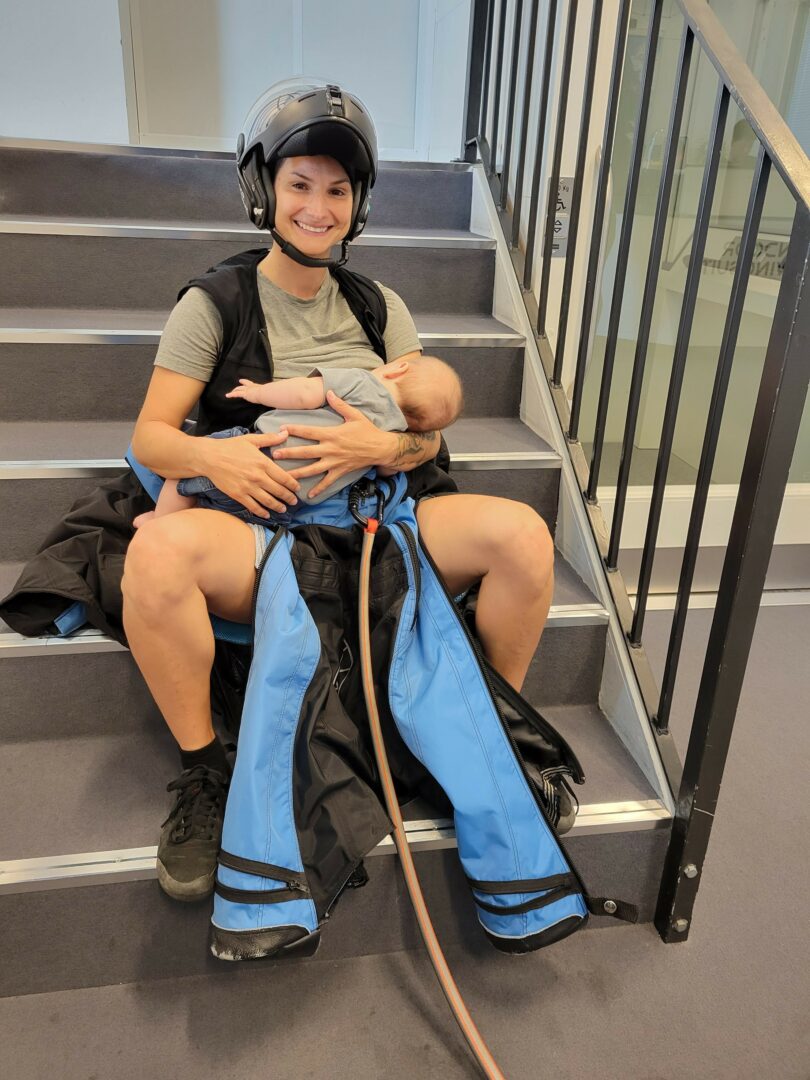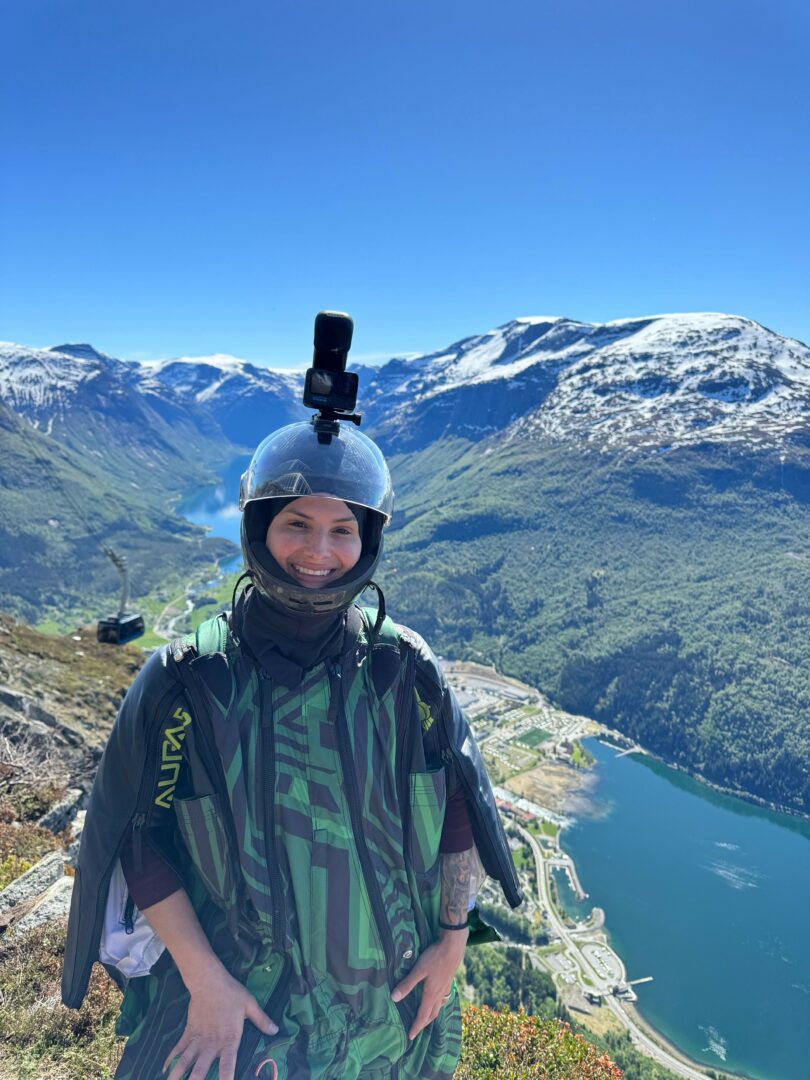We recently connected with JULIA MORGAN and have shared our conversation below.
Hi JULIA, thanks for joining us today. Let’s jump right into something we’re very focused on here – improving our ability to make decisions. Everyday, we’re faced with decisions that can impact the future of our careers, businesses, relationships and more and so one of the most impactful areas for personal development, in our view, is decision-making. Can you talk to us about how you developed or improved your decision-making skills?
When it comes to decision-making skills, the first thing I think about is BASE jumping. As an athlete and coach in this sport, I know that decision-making can quite literally mean the difference between a safe jump and a serious accident.
Good decisions start well before you leave the ground. You have to choose the right object for the conditions, evaluate weather and wind, listen to your intuition, and even ask yourself if today is the right day to jump at all.
Decision-making is a skill you can train, just like any other. One of the most powerful ways to improve it is by training your brain to act and react quickly. The more you practice a skill, the faster your brain processes it — you build muscle memory, and when the moment comes, you perform without hesitation.
Visualization is another powerful tool. Mentally rehearsing different scenarios and imagining the exact actions you would take prepares your mind to respond automatically under stress. Repetition creates habit, and habits are what enable mastery. When we repeat a behavior over and over, the neurons responsible for that action become more interconnected, forming a strong neural pathway. This makes the behavior more automatic and less dependent on conscious thought.
By intentionally putting myself in stressful situations — whether that’s through training, visualization, or real-life practice — I’m preparing my brain to make the right decision quickly and efficiently when it really matters. That’s what keeps me safe and sharp in a sport where every choice counts.

Let’s take a small detour – maybe you can share a bit about yourself before we dive back into some of the other questions we had for you?
I’m a professional wingsuit BASE jumper, skydiver, and coach, and I run Bobs BASE, a school dedicated to teaching people how to enter the world of BASE jumping safely and progressively. I started in the sport more than a decade ago, in 2012, first as part of the Brazilian Army’s 4-way skydiving team, and later discovered my passion for wingsuit flying. Today, I’m based in Southern California at Skydive Elsinore, where I coach skydivers and wingsuit pilots and run international BASE courses and camps.
What excites me most about my work is helping people experience something that truly transforms them. BASE jumping isn’t just an adrenaline rush — it’s about precision, mental discipline, and personal growth. Seeing students go from their very first jump to developing the skills and confidence to explore the world safely is incredibly rewarding.
One thing that makes what I do unique is that I combine years of experience — over 1,600 BASE jumps, 2300 skydives, and 20 hours in the tunnel — with a very personal approach to teaching. Safety and progression are at the core of what we do, but we also build community. The people you meet and the connections you make are just as important as the jumps themselves.
Right now, I’m especially excited about competing in Acrobatic WINGSUIT representing the USA in the World Cup and nationals competitions.
If you had to pick three qualities that are most important to develop, which three would you say matter most?
Looking back, I’d say the three most impactful qualities in my journey have been patience, self-awareness, and emotional discipline.
Patience was crucial. In BASE jumping and wingsuit flying, progression takes time — and that’s a good thing. People starting today should know that time in the sport is more important than just chasing jump numbers. Every step, from learning canopy skills to understanding weather and objects, builds a foundation for the next. When you rush, you skip valuable lessons that might one day save your life.
Self-awareness has been one of my best tools. I’ve learned to respect my intuition — if something feels off, there’s a reason. It’s okay to walk away from a jump, even if everyone else is going. Those decisions are the ones that keep you coming back for many more jumps.
And maybe the most important quality is emotional discipline. What kills in this sport is not the jump itself — it’s our head, our ego, our emotions. Fear, pressure, and overconfidence can push you into situations you’re not ready for. Acting with reason, not emotion, is what allows you to make clear decisions under stress.
My advice for anyone starting out is simple: respect the progression and enjoy every step of the way. Take your time to learn, train, and build experience. Learn to pause, breathe, and check in with yourself before you act. This sport rewards those who play the long game.
Okay, so before we go, is there anyone you’d like to shoutout for the role they’ve played in helping you develop the essential skills or overcome challenges along the way?
I’ve been incredibly lucky to have mentors and friends who shaped the way I approach this sport. Scotty Bob has been one of the most influential people in my journey — not just as a coach, but as a partner who challenges me to think critically, stay disciplined, and never stop learning. He’s helped me see that the sport isn’t just about performance, it’s about longevity and making decisions that allow you to keep doing what you love for years to come.
But the biggest shift in my life came when I became a mom. Having a child completely changed the way I see this sport and the way I practice it. I’m much more intentional now — I analyze risks more carefully, I’m less likely to give in to peer pressure, and I think further ahead before every jump. My priority is to go home safely, and I teach my students to have that same mindset. It’s made me a better coach and a safer athlete.
Contact Info:
- Website: https://bobsbase.com
- Instagram: julsbotelho
so if you or someone you know deserves recognition please let us know here.




